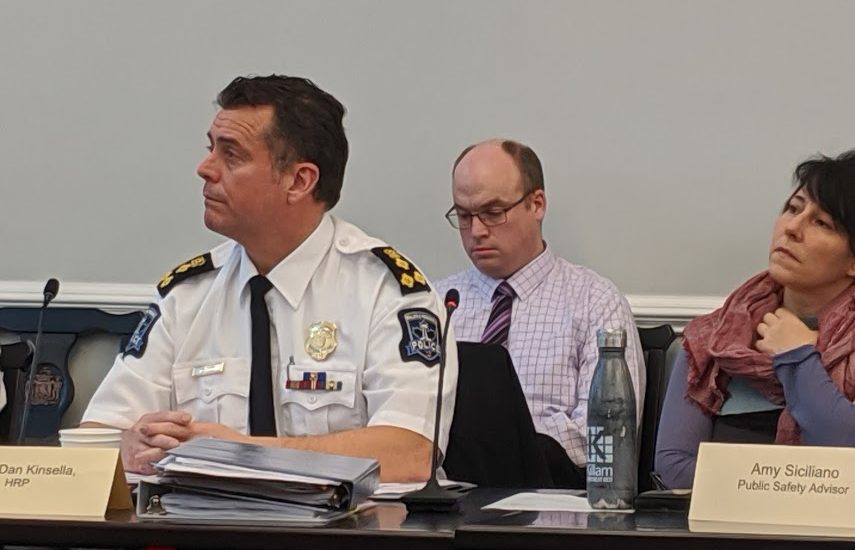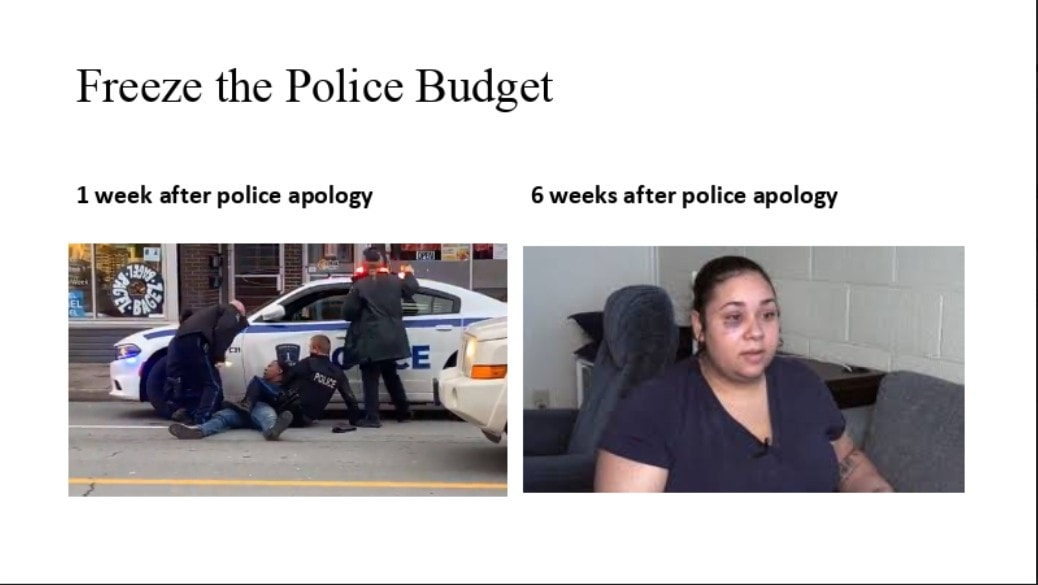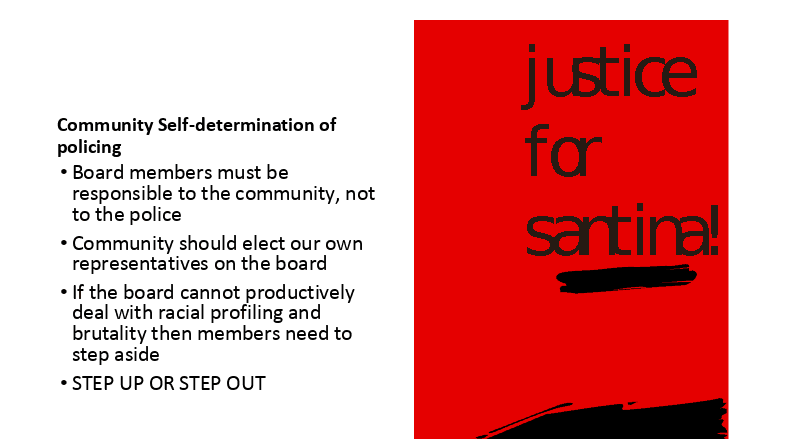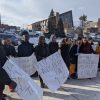
KJIPUKTUK (Halifax) – Meeting of the Halifax Board Of Police Commissioners are usually pretty dull affairs, with everybody vehemently agreeing on everything.
Slightly less so today.

Early on in the meeting poet and activist El Jones in a short presentation argued that budget increases requested by Halifax Regional Police should be conditional on positive changes in how police interacts with the Black community.
Changes that have not yet materialized, Jones said.
El Jones raised the racist profiling and violent arrest of Santina Rao in front of her two small children while shopping at Walmart as an indication that police street checks continue, just in a more informal way.
“We have been repeatedly told that we have the right to refuse a street check, yet when Santina Rao was asked for her I.D. and asserted her rights, she was accused of “causing a disturbance,” Jones said. “This indicates that police have not changed their practices around street checks, and that asserting rights is seen as cause for being beaten, arrested, and charged.”
“The Macdonald/Taylor opinion found street checks to be illegal. It defies logic to reward an institution found guilty of systemic violations of human rights with more money before they have met the demands of the community or produced any evidence of changing their practices,” Jones said.
She also contrasted the huge amounts of money spent on police budgets with the needs of a community that faces pressing issues such as child poverty.
Apart from a budget freeze, Jones also asked the Board to recommend to Council that for every dollar spent on policing the City allocates another two dollars to social and economic programs, with the details to be determined by these communities.

And finally she challenged the members of the Board, in particular its African Nova Scotian members, to assert their powers and deal with police brutality and racism within the RCMP and HRP.
“If the board cannot productively deal with racial profiling and brutality, then the members need to step aside, and this particularly goes for members of the African Nova Scotian community. I know it’s a very awkward position when you are within these systems. But you are here to represent our community and at some point you are going to have to make a choice,” she said.
None of this was appreciated by councillor and board member Tony Mancini, who couldn’t wait to ask the first question.
“2019 was an interesting year, some ups and downs for sure. Can you name any good that you have seen that the police has done the last few years,” Mancini asked.
“I don’t think that’s an appropriate question, I think you are derailing the actual discussion,” Jones replied, while Mancini continued to speak even while the Chair suggested that line of questioning be deferred.
Mancini’s was a silly question of course. One that had nothing to do with the presentation, and was only asked so as to be able to shrug off Jones as a person who only has negative things to say.
I continue to be surprised by the lack of humility of the Board even after the Wortley report.
The HRP was ordered by the Kirk Johnson human rights tribunal to collect race-based statistics for traffic stops and street checks. That decision was rendered in 2003.
Ever since, in all these sixteen years, not one member of the Board ever spoke up and insisted to see these stats, and the many indications that something was amiss coming from the Black community were shrugged off. Instead, it took a FOIPOP request by journalists to find out how bad things were.
But woe the person who dares suggest all is not well with the police or the oversight provided by the Commission.
With a special thanks to our generous donors who make publication of the Nova Scotia Advocate possible.
Subscribe to the Nova Scotia Advocate weekly digest and never miss an article again. It’s free!



